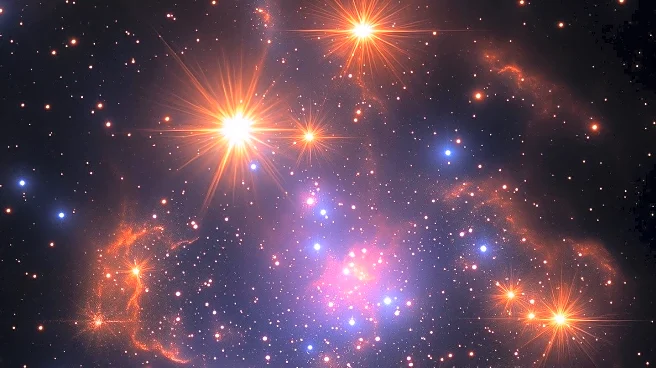What is the story about?
What's Happening?
On October 9, 2025, a celestial event will occur as the moon passes in front of the Pleiades star cluster, also known as the Seven Sisters. This event will be visible in the eastern United States and Atlantic Canada, beginning within an hour of local midnight. The moon, in its waning gibbous phase, will obscure the stars of the Pleiades, causing them to disappear and reappear as the moon moves across the sky. The event will last approximately two hours, with the moon positioned halfway up in the eastern sky. Observers are advised to use telescopes for the best view, although binoculars may suffice for the reappearance of the stars.
Why It's Important?
This astronomical event offers a unique opportunity for stargazers and astronomers to observe the interaction between the moon and a prominent star cluster. The occultation of the Pleiades by the moon is part of a series that began in 2023 and will continue until 2029. Such events are significant for educational and observational purposes, providing insights into celestial mechanics and the movement of celestial bodies. The visibility of this event across a large geographic area enhances public interest in astronomy and encourages engagement with the night sky.
What's Next?
Following this event, the next widely visible occultation of the Pleiades across North America is scheduled for December 3, 2025. This ongoing series of occultations will continue to offer opportunities for observation and study until 2029. Astronomers and enthusiasts will likely prepare for these future events, utilizing them to further understand the dynamics of the moon's orbit and its interaction with other celestial objects.
Beyond the Headlines
The occultation series highlights the predictable nature of celestial events, allowing for long-term planning and observation. It also underscores the importance of public engagement with science, as such events can inspire interest in astronomy and related fields. The cultural and educational value of observing the night sky can foster a greater appreciation for science and the universe.















